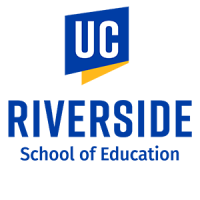Successful Job Hunting in a Nutshell
Successful Job Hunting in a Nutshell
After more than 20 years of first-hand experience in recruiting, executive coaching, career counseling, résumé writing and teaching the self-directed-search (SDS) job hunting method, I have discovered some irreducible 'truths' about the challenges involved in finding a quality job in these difficult times, and how to compete successfully against fierce competition from other job seekers.
First of all, job hunting is a most unpleasant endeavor for most people, especially those who are unemployed with their backs up against the wall with overdue mortgage payments, car loans and thousands of dollars of revolving credit card debt. If the current unemployment was involuntary, that is, the former employer downsized you out to cut overhead, then there is an emotional burden to add to the mix. The idea is to get through the process as quickly and painlessly as possible.
Know Your Local Business Community
That being said, you may be assured that successful job hunting is not rocket science; it is simple, yet has some inviolate rules that must be rigorously observed, or the process will become extremely painful and drawn-out. Rejection, disappointment and frustration are common fare for those job hunters who have not done their homework. The biggest mistake most job hunters make is tackling the job hunt with too little information.
The overriding goal is to make your availability known to quality employers who are manifesting the growth and change that signals hiring is going on. That means job hunters must savvy the business information resources that are available to target those prospective employers most likely to hire them. Local business community news sources like the daily newspaper, the local weekly business journal and the monthly magazine(s) covering state business developments are invaluable. They are flush with clues about who is hiring. Industry magazines and professional publications as well as industry vendor directories like the one published by the Association of Operating Room Nurses (AORN), and library resources like the Thomas Register of American Manufacturers are invaluable for targeting prospective employers. The volume of resources is too great to attempt to present them here, but make no mistake, these are the foundation of a successful job hunt.
Be Aggressive
Contact prospective employers DIRECTLY to announce your availability. Do NOT wait for a company to advertise a vacancy; be aggressive by contacting a large number of prospective employers. Most companies now receive résumés electronically, so there's no resistance to receiving unsolicited résumés; in fact, this is one of the most successful tactics to use in today's highly competitive job market. Do your research to identify the quality companies that are on a roll, and bury your résumé in the résumé databases of them all. It's a numbers game; the more companies who have your résumé in their databases, the greater the odds of you being contacted when a vacancy calling for your skill set becomes available.
If a prospective employer has multiple positions for which you are qualified, submit a separate résumé for each one, making sure each is tailored to address the specific skills sought for that position. The electronic keyword search systems that scan résumés are tuned to job-specific key words. Just remember, there is no substitute for conducting business news research to identify where the action is in the local community. Use that research to direct your job hunt.
Résumé Reality
The most serious failing for most job hunters is with their résumés. Profound changes in the way companies use résumés to find prospective employees are causing millions of job hunters to be eliminated in the first millisecond of an electronic search. Failure to create a résumé that will respond to the search terms of résumé database systems like RESUMIX and RECRUITMAX is certain doom. So many job hunters think they are saving money by writing their own résumé, when in reality they are creating a document that does more harm than good. There was a time when a person with a good command of the English language could write an acceptable résumé. Those days are long gone. Today, hiring managers and Human Resource professionals craft electronic job profiles that detail a "shopping list" of desired qualities, and most of the search terms are NOUNS, not verbs. The old verb-based résumé no longer works.
Spend a few hundred dollars to have a professional résumé writer create a presentation that'll take you to the head of the line. Remember, no interview, no job. If your résumé doesn’t' consistently win invitations to job interviews, then you're in big trouble, and you're going to miss out on great opportunities. But a warning: finding a genuine professional résumé writer can be almost as difficult as trying to write the résumé yourself. There are thousands of people who have put up Websites on the Internet declaring themselves "professional" résumé writers. Most of them are women, single moms, and retired folks trying to make money with a computer working out of their homes. They are really nothing more than typists, and certainly not the college educated career counseling professionals equipped by training and experience to do the job right. Always ask about their credentials, their educational level, and real-world business experience — and CHECK their credentials — don't accept them at face value. And always validate their claims with the local Better Business Bureau.
Remember, too, a job hunting campaign is a SALES campaign, and the résumé is the primary MARKETING instrument for gaining an employer's attention; it must be dynamic and persuasive. Employers read résumés from a very selfish perspective: What can you do for me? The résumé must present relevant skill sets, education and scopes of responsibility that are compatible with the position the company is trying to fill. The only way to meet that criteria is to do the research. Also, every résumé should begin with a Summary of Qualifications that efficiently outlines your key talents and most valuable skills that relate to the job for which you are applying.. You simply can't expect today's busy managers to read down through multiple job descriptions to figure out and interpolate your experience. The Summary of Qualifications gives it to them in a short and easy-to-read bulleted list.
Job Hunting Myths
Be wary of unsubstantiated rumors and myths about what works in job hunting. The Internet is awash with the opinions of people who really have no idea what they're talking about. One of the greatest job hunting myths trumpeted about for decades is that the number one and most successful job hunting method is networking. There is not a single reliable, scientifically-validated survey to substantiate that statement. In fact, a U.S. government survey done more than 20 years ago discovered the exact opposite: that most successful job hunters did NOT find their current job through networking. One of the more interesting facts that that same survey uncovered is that most successful job hunters used more than one method in the course of their job search. Networking is the most time-consuming and painful of all the job hunting methods, and the least likely to produce the desired results. This is not to say that networking is worthless; just don't be lulled into believing that it is the best method available for finding a job, because it isn't.
Another common myth: Internet job boards are a great way to find a job. Not true. The first thing to realize is that Internet job boards are really nothing more or less than an electronic version of newspaper want ads. Newspaper want ads have always been regarded by career counseling professionals as the worst resource for finding a quality job with a quality company. And there has always been an element of deception (if not outright fraud) associated with want ads. Fully one-fourth of the positions on the Internet job boards don’t exist; they've been placed there by persons with a vested interest other than looking to fill a job vacancy. Recruiters, for instance, will place dummy ads in order to build databases of the kind of talent their clients hire. Also, many times when you respond to what appears to be a job vacancy, you discover that they are really trying to sell you something, or want a "fee" of some sort, or try to get you fill out an "application" that they will later sell to a third party. Internet scams are endless.
The biggest mistake you can make with the Internet job boards is submitting your résumé for posting on websites like Monster.com and CareerBuilder.com and call that "job hunting." At best, it is just about the most passive effort a job hunter can make, and the odds of scoring a job that fits all of your personal career criteria are worst than winning the state lottery. The only thing that can be said for the Internet job boards is they are free. But remember: You get what you pay for. If you paid nothing, the likelihood is that you will get nothing in return.
So, there it is in a nutshell: Job hunting is hard work and can challenge even the most persistent of job seekers. Success comes most quickly to those who (1) bring their full intelligence to the process, (2) conduct definitive job market research to identify those employers who are hiring, (3) prepare professionally-written résumés that respond to the new electronic search software, (4) target their résumé submissions to a large number of carefully selected employers, and (5) maintain a positive attitude and never give up.
Good luck!
Robert H. Johnson, B.A., M.A., JCTC



